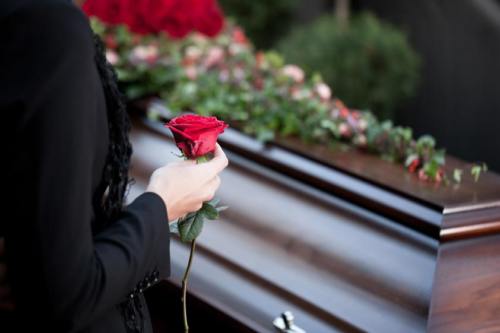The Ohio wrongful death lawyers at Cowan & Hilgeman are experienced handling wrongful death claims and are committed to results when you need them most.
The information below is meant to serve as a brief summary of Ohio wrongful death lawsuits and claims, and not meant to serve as legal advice on any particular claim.
Wrongful death is the legal term used for the untimely loss of life due to negligence caused by another. Ohio wrongful death lawsuits may arise as a result personal injury, medical malpractice, nursing home negligence or product liability claims.
Who Can Bring an Ohio Wrongful Death Case?
Ohio wrongful death claims are intended to provide damages to the decedent’s survivors. Ohio Revised Code §2125.02(A)(1) states, “a civil action for wrongful death shall be brought in the name of the personal representative of the decedent for the exclusive benefit of the surviving spouse, the children, and the parents of the decedent, all of whom are rebuttably presumed to have suffered damages by reason of the wrongful death, and for the exclusive benefit of the other next of kin of the decedent.”
Therefore, Ohio wrongful death law presumes damages to the parents, surviving spouse and children of the individual killed by negligence. While there is mention that a claim can be maintained for the “other next of kin,” damages are not presumed for this line of claimants. Generally, the surviving spouse will serve as the legal representative prosecuting the wrongful death action.
What Compensation is Available in an Ohio Wrongful Death Case?
Pursuant to Ohio Revised Code §2125.02(B)(1)-(5), Ohio wrongful death claims allow for the beneficiaries designed by statute (surviving spouse, children and parents) and other next-of-kin to recover the following damages:
- Loss of support from the reasonably expected earning capacity of the decedent;
- Loss of services of the decedent;
- Loss of the society of the decedent, including loss of companionship, consortium, care, assistance, attention, protection, advice, guidance, counsel, instruction, training, and education, suffered by the surviving spouse, dependent children, parents, or next of kin of the decedent;
- Loss of prospective inheritance to the decedent’s heirs at law at the time of the decedent’s death; and
- The mental anguish incurred by the surviving spouse, dependent children, parents, or next of kin of the decedent. Ohio Revised Code §2125.02(D)(1) requires that all wrongful death lawsuits must be filed within two (2) years from the date of death caused by the negligence. If you do not bring a wrongful death lawsuit within two (2) years, then you will be forever barred from compensation for the loss of a loved one.
How Is Compensation Divided in an Ohio Wrongful Death Case?
Ultimately, the local county probate court will determine how the Ohio wrongful death proceeds are allocated among the statutory beneficiaries (surviving spouse, children and parents) and other next-of-kin. Ohio Revised Code §2125.03 sets forth the considerations for distribution of any compensation recovered through the wrongful death action:
The amount received by a personal representative in an action for wrongful death under sections 2125.01 and 2125.02 of the Revised Code, whether by settlement or otherwise, shall be distributed to the beneficiaries or any one or more of them. The court that appointed the personal representative, except when all of the beneficiaries are on an equal degree of consanguinity to the deceased person, shall adjust the share of each beneficiary in a manner that is equitable, having due regard for the injury and loss to each beneficiary resulting from the death and for the age and condition of the beneficiaries. If all of the beneficiaries are on an equal degree of consanguinity to the deceased person, the beneficiaries may adjust the share of each beneficiary among themselves. If the beneficiaries do not adjust their shares among themselves, the court shall adjust the share of each beneficiary in the same manner as the court adjusts the shares of beneficiaries who are not on an equal degree of consanguinity to the deceased person.
Therefore, if the potential beneficiaries cannot agree on how to disburse compensation recovered through an Ohio wrongful death lawsuit, the parties must appear before the local probate court and present their case as to requested compensation.
If you or a loved one have been impacted by Ohio wrongful death or have questions regarding a potential Ohio wrongful death claim, contact the lawyers at Cowan & Hilgeman to receive a free case evaluation regarding your potential lawsuit.
The personal injury lawyers at Cowan & Hilgeman have recovered millions in compensation for our clients. Our lawyers create plans of attack for each case specific to the client’s needs and expectations. The lawyers at Cowan & Hilgeman handle claims involving personal injury, medical malpractice, nursing home negligence, product liability and wrongful death. We routinely recover compensation on cases that other law firms reject.
Cowan & Hilgeman offers free personal injury case evaluations and only get paid an attorney fee if we win your personal injury case.

